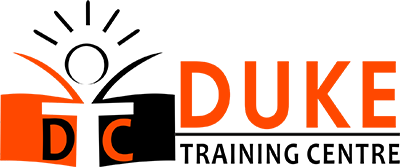Best VAT Training Course Institute in Abu Dhabi
What is Tax?
Tax is the means by which governments raise revenue to pay for public services. Government revenues from taxation are generally used to pay for things such public hospitals, schools and universities, defence and other important aspects of daily life.
There are many different types of taxes:
- A direct tax is collected by government from the person on whom it is imposed (, income tax, corporate tax).
- An indirect tax is collected for government by an intermediary ( a retail store) from the person that ultimately pays the tax (, VAT, Sales Tax).
What is VAT?
- Value Added Tax (or VAT) is an indirect tax. Occasionally you might also see it referred to as a type of general consumption tax. In a country which has a VAT, it is imposed on most supplies of goods and services that are bought and sold.
- VAT is one of the most common types of consumption tax found around the world. Over 150 countries have implemented VAT (or its equivalent, Goods and Services Tax), including all 29 European Union (EU) members, Canada, New Zealand, Australia, Singapore and Malaysia.
- VAT is charged at each step of the ‘supply chain’. Ultimate consumers generally bear the VAT cost while Businesses collect and account for the tax, in a way acting as a tax collector on behalf of the government.
- A business pays the government the tax that it collects from the customers while it may also receive a refund from the government on tax that it has paid to its suppliers. The net result is that tax receipts to government reflect the ‘value add’ throughout the supply chain. To explain how VAT works we have provided a simple, illustrative example below (based on a VAT rate of 5%)
What is the difference between VAT and Sales Tax?
A sales tax is also a consumption tax, just like VAT. For the general public there may be no observable difference between how the two types of taxes work, but there are some key differences. In many countries, sales taxes are only imposed on transactions involving goods. In addition, sales tax is only imposed on the final sale to the consumer. This contrasts with VAT which is imposed on goods and services and is charged throughout the supply chain, including on the final sale. VAT is also imposed on imports of goods and services so as to ensure that a level playing field is maintained for domestic providers of those same goods and services.
Many countries prefer a VAT over sales taxes for a range of reasons. Importantly, VAT is considered a more sophisticated approach to taxation as it makes businesses serve as tax collectors on behalf of the government and cuts down on misreporting and tax evasion.
Course Outline
Day1
- Introduction to TAXES & VAT
- Background & Economical Facts
- VAT Principles
- VAT & GCC
- Difference between VAT & Sales Tax
- VAT Rates
- VAT Terminologies (as defined by Ministry of Finance)
- Applicability of VAT
- VAT developments
- Who & how one can object on VAT
- Accounting Entries for VAT
DAY 2
- How VAT works
- Who is required to register for VAT
- Taxable Supplies
- Zero Rated Supplies
- Exempt Supplies
- VAT Groups
- VAT related responsibilities for Business
- VAT Returns
- Bad Debt Treatment
- Fully VAT Taxable Business
- Exempt Business
- Mixed Business
- Types of Supplies
Day 3
- Compliance
- Penalties for non-compliance
- VAT Invoice
- Conditions for VAT claim on Expenses
- VAT on import
- Claim & Documentation
- Challenges
- VAT Records
- Industry Focus (Construction, Education, Real Estate etc)
- Sector Focus







